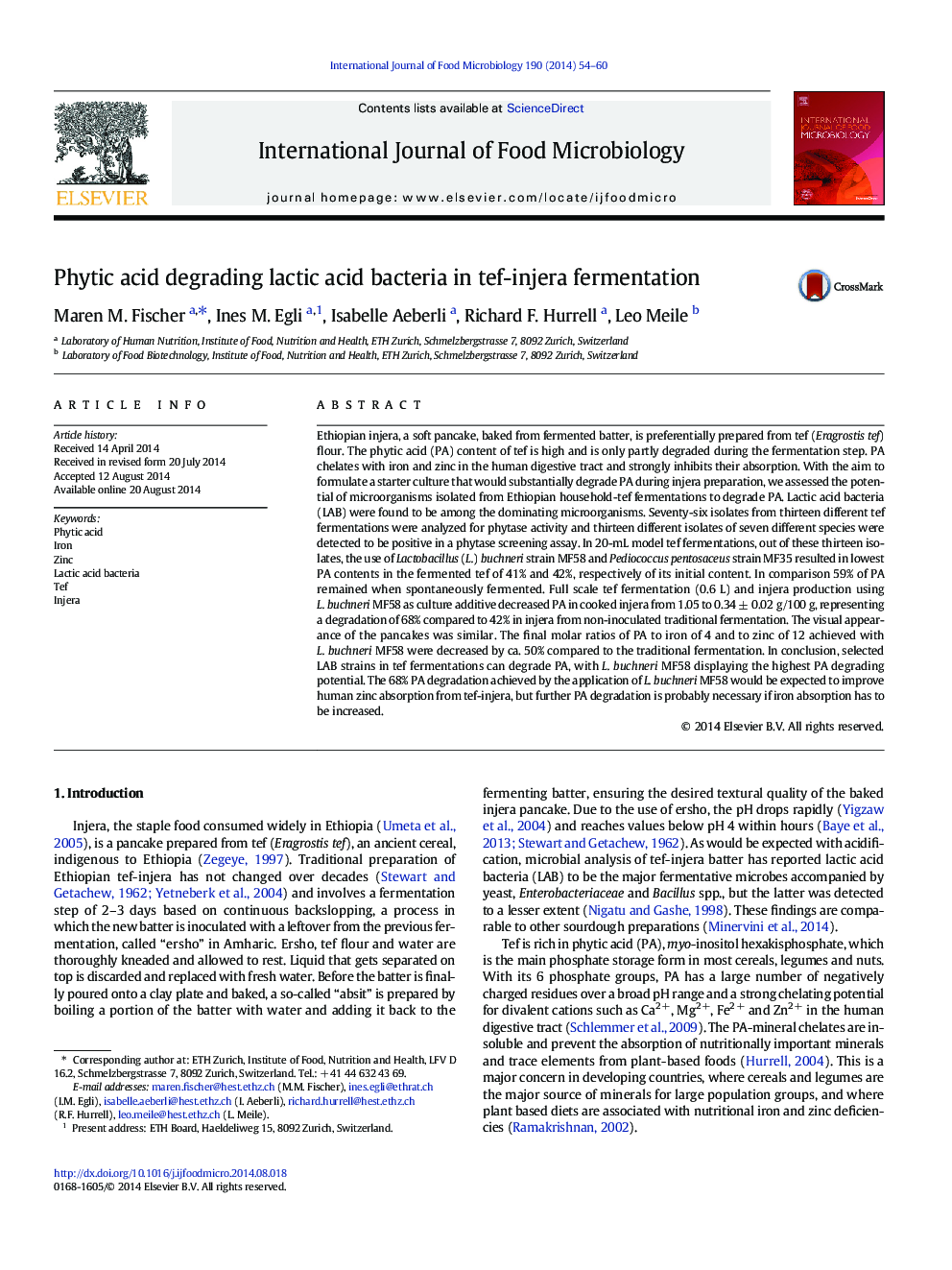| کد مقاله | کد نشریه | سال انتشار | مقاله انگلیسی | نسخه تمام متن |
|---|---|---|---|---|
| 4366807 | 1616593 | 2014 | 7 صفحه PDF | دانلود رایگان |
• Lactic acid bacteria degrade phytic acid during tef fermentation.
• Selected starter cultures enhance phytic acid reduction during tef fermentation.
• Zinc, but not iron bioavailability can be improved by starter culture selection.
Ethiopian injera, a soft pancake, baked from fermented batter, is preferentially prepared from tef (Eragrostis tef) flour. The phytic acid (PA) content of tef is high and is only partly degraded during the fermentation step. PA chelates with iron and zinc in the human digestive tract and strongly inhibits their absorption. With the aim to formulate a starter culture that would substantially degrade PA during injera preparation, we assessed the potential of microorganisms isolated from Ethiopian household-tef fermentations to degrade PA. Lactic acid bacteria (LAB) were found to be among the dominating microorganisms. Seventy-six isolates from thirteen different tef fermentations were analyzed for phytase activity and thirteen different isolates of seven different species were detected to be positive in a phytase screening assay. In 20-mL model tef fermentations, out of these thirteen isolates, the use of Lactobacillus (L.) buchneri strain MF58 and Pediococcus pentosaceus strain MF35 resulted in lowest PA contents in the fermented tef of 41% and 42%, respectively of its initial content. In comparison 59% of PA remained when spontaneously fermented. Full scale tef fermentation (0.6 L) and injera production using L. buchneri MF58 as culture additive decreased PA in cooked injera from 1.05 to 0.34 ± 0.02 g/100 g, representing a degradation of 68% compared to 42% in injera from non-inoculated traditional fermentation. The visual appearance of the pancakes was similar. The final molar ratios of PA to iron of 4 and to zinc of 12 achieved with L. buchneri MF58 were decreased by ca. 50% compared to the traditional fermentation. In conclusion, selected LAB strains in tef fermentations can degrade PA, with L. buchneri MF58 displaying the highest PA degrading potential. The 68% PA degradation achieved by the application of L. buchneri MF58 would be expected to improve human zinc absorption from tef-injera, but further PA degradation is probably necessary if iron absorption has to be increased.
Journal: International Journal of Food Microbiology - Volume 190, 3 November 2014, Pages 54–60
